#somebody in otgw I'm pretty sure but like
Explore tagged Tumblr posts
Text
Why is Doctor Nesbitt described like a fucked up fey mirror of Professor Thaddeus, and why are they my favorite animal in c3 to date.
#I'm obsessed with this weird ass owl potoo bird#I'm trying to figure out precisely what this voice is giving me but I love it so much#somebody in otgw I'm pretty sure but like#plenty of options which is the problem#critical role#cr spoilers#OH IT'S GIVING ADELAIDE VIBES#matthew channeling evil witch john cleese for this bird
169 notes
·
View notes
Text
Over the liminal mindscape
I love and hate how this show's ending is completely left up to interpretation, mainly because of Wirt and Greg's potential deaths and how that makes me feel about the show as a whole. It attaches a sort of bittersweet feeling to it which I'm not too sure about. more on that soon though.
Anyway, when paying even just an inkling of attention to this show, you can almost immediately connect the dots and come to the conclusion that none of the adventures (for the most part) actually happened. This conclusion is heavily drawn from the frames we see at the very beginning, of Wirt, Greg, and Jason Funderburker (the frog) drowning. (ep 1)

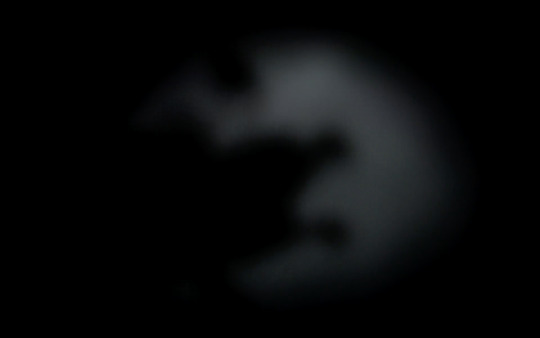

and from the frames where Wirt wakes up in the water after having said goodbye to Beatrice, saving his brother and the frog by carrying them both out of the water. (ep 10)


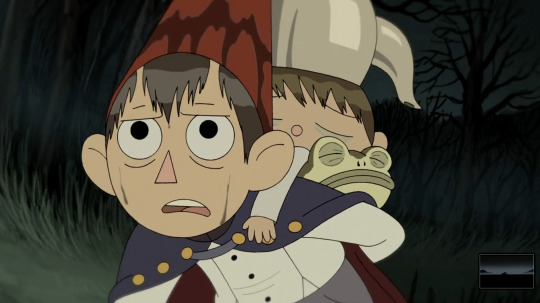
Taking into account that Wirt, Greg, and Funderburker all fell into the water moments before almost getting hit by a train, which we discover in episode 9; Into The Unknown, I think it's pretty safe to assume that this is, in fact, the case and that OTGW takes place in either a mental space or a physical limbo, occurring while they are all in the process of drowning.
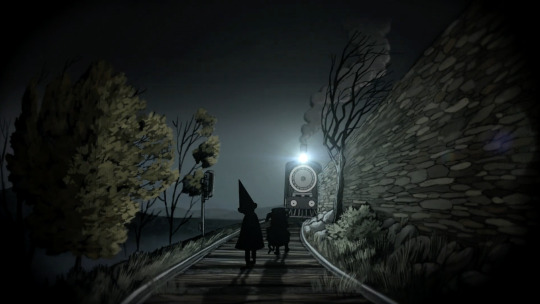
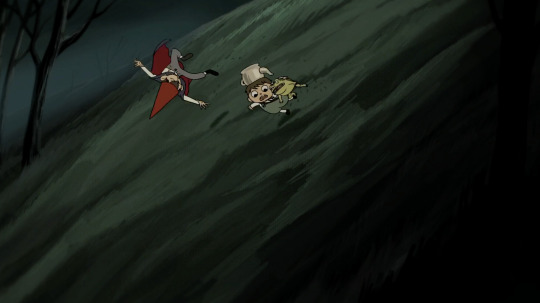
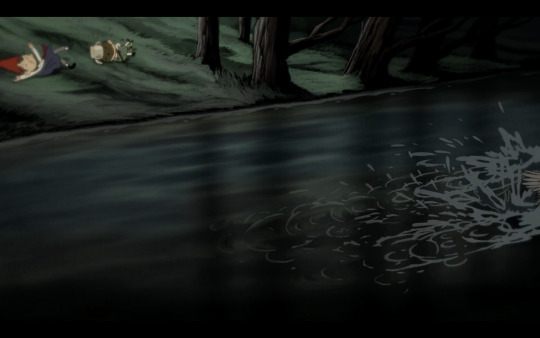
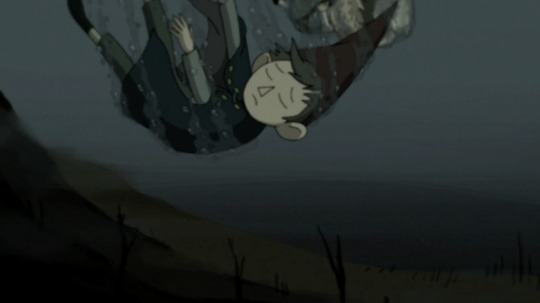
Another thing I'd like to mention is that OTGW is heavily based off of Dante's Inferno, which, in the simplest of summaries, is a poem about a journey that begins in a forest, leads through hell, and eventually into heaven, hence the theorized death I mentioned earlier. It's actually pretty easy to spot where these references and homages lie, for example, the formula of the story is somewhat similar, and the characters take on similar roles. (for example, Virgil: Beatrice/Woodsman(?)or even Greg in some cases, Beatrice: Sara, Dante: Wirt.) (please read Inferno or a summary of it to fully understand this if you haven't already because it's actually really interesting).
Rewatching OTGW with this in mind led me to realize a lot of things that I originally passed off as unique writing choices with no actual meaning behind them. Then again that could be the case but what's the fun in assuming that?
Upon entering the unknown, we're launched into a universe with a seemingly ever-changing time period. Characters talk funny and fancy, dress and act as if they're from the 1600s-1700s, and none of our protagonists seem particularly fazed by this (except for Beatrice, occasionally) with Greg using a phrase such as "brother o'mine" and Wirt's dramatic poetic rambles. Everything feels very inspired while also being all over the place, almost as if it's been composed from memories, lying in the pits of somebody's mind...
Wirt is a Huge Nerd.
If I am to believe that this show takes place in one of our protagonists' minds, which I do in fact believe, then I would say that that protagonist has to be Wirt. Wirt has a tendency to go on poetic spiels, even dropping two of them in the very first episode. Accompanied by his teenage boy dread (being a nerd at 14 is tough) and his overextending knowledge about curious things, which he showcases in his exclaim at Beatrice's ability to talk and his comment about one of the rooms in Endicott's mansion (below), It becomes a glaring possibility that OTGW is primarily from Wirt's point of view, with the Unknown existing solely in his head.

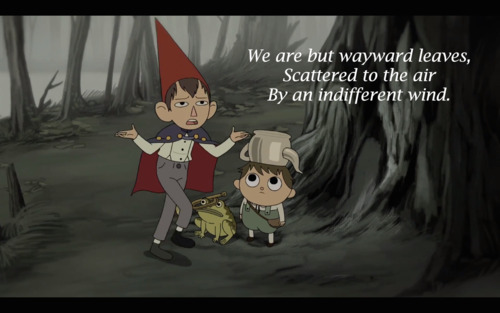
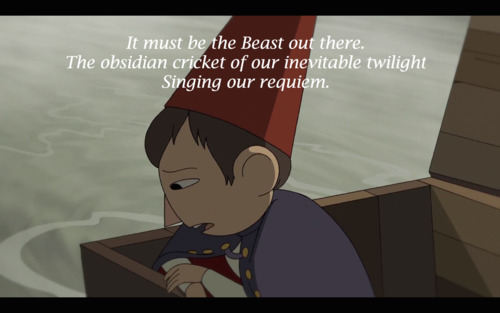
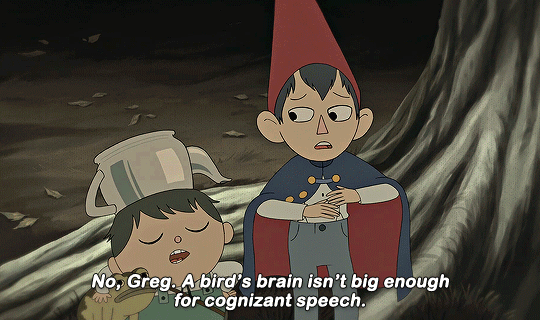
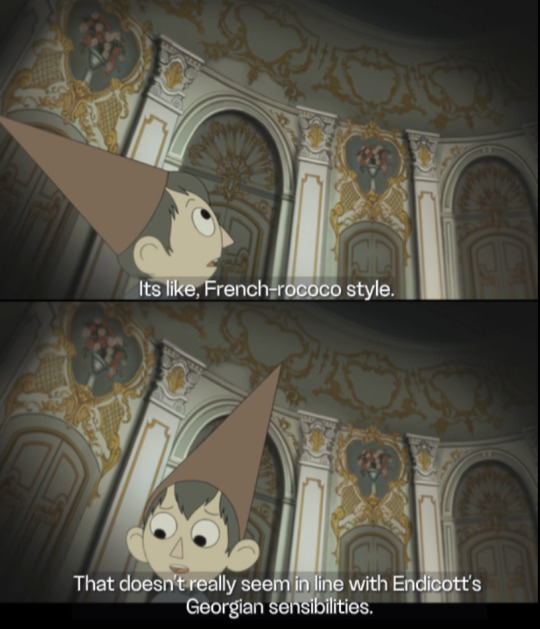
I've actually seen this point argued before, with some people mentioning the black turtles on the poster in Wirt's room or just his entire room in general. However, if true, that doesn't really answer the question of whether the unknown exists as a physical space or a mental one, having no supernatural effects on the real world.
2. The Implications of the Bell
Okay, so, listen.
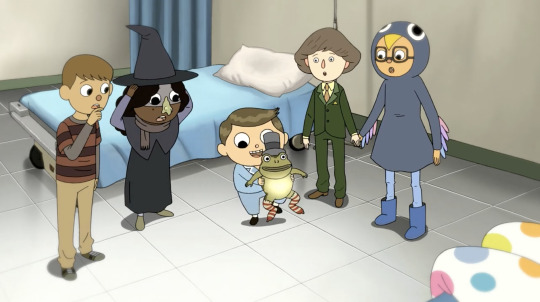
I hate to be the kind of person who goes "Well it's probably just a fun and silly bit that doesn't actually mean anything." but I'm gonna be that person anyway, or at least I'm not going to assume character death because I don't want to and free will is a thing blablablabla. I will however be serious for a second and try to provide a tangible reason for why I think this scene doesn't have any real-world implications.
For one, this scene immediately jumpcuts to a voiceover, followed by scenes that serve as conclusions for the stories of the characters we've met along the way, all of them being positive. I think this serves the purpose of letting us know the story did in fact have a good ending, with Wirt learning how to treat his brother with respect. I also think that ties into the theory above.
Not only does the unknown serve as a mental limbo but it also serves as a lesson for Wirt in particular. This journey is riddled with self-critique, characterized as Beatrice, all the while Wirt is drowning and realizing he's not only failed himself but his brother as well.
3. The Beast
Surprisingly I haven't mentioned the beast yet even though he's very important to the story. The beast represents a couple of things, one being death and two being the overarching, real-world problem. Those may sound like the same thing, and honestly, they are depending on what you think the problem is. To me, it's Wirt's relationship with, and treatment of Greg in the real world that bleeds into the universe of the unknown.
The exchange that Wirt has with the beast at the end of episode 10 fully encapsulates his character growth. The characters his mind has created have actually taught him something, that being; wallowing in sorrow and accepting your fate is just going to lead you further down this winding path, or in this case, to the bottom of this lake. You will never get home.
Unlike I've seen others suggest, this is not a story of a boy failing and dying while so wrapped up in his own fantasy, eventually residing in a false heaven. Instead, everything is put back where it needs to be.
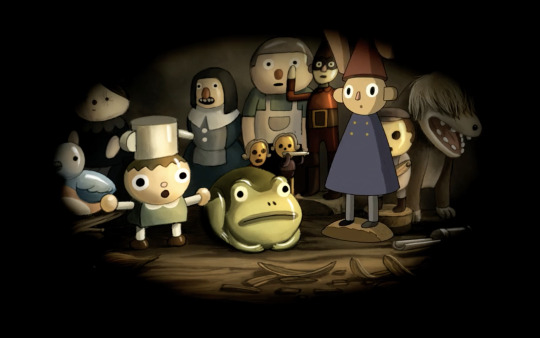
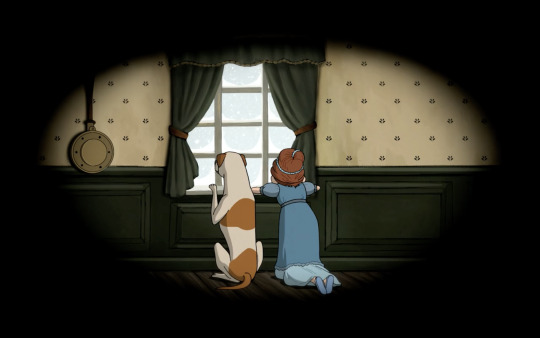
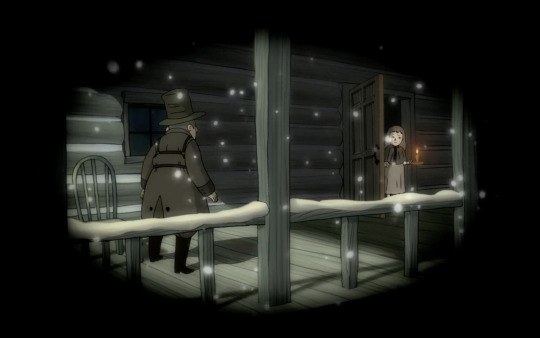
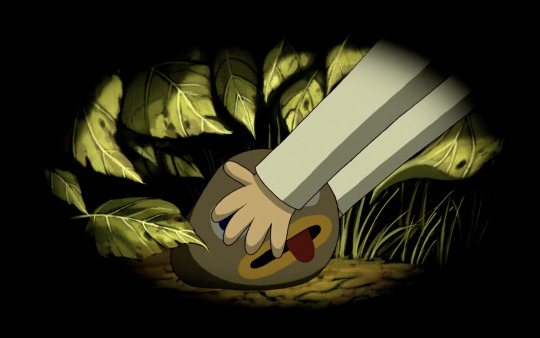

From the forest, through the unknown, and finally, back home.
55 notes
·
View notes